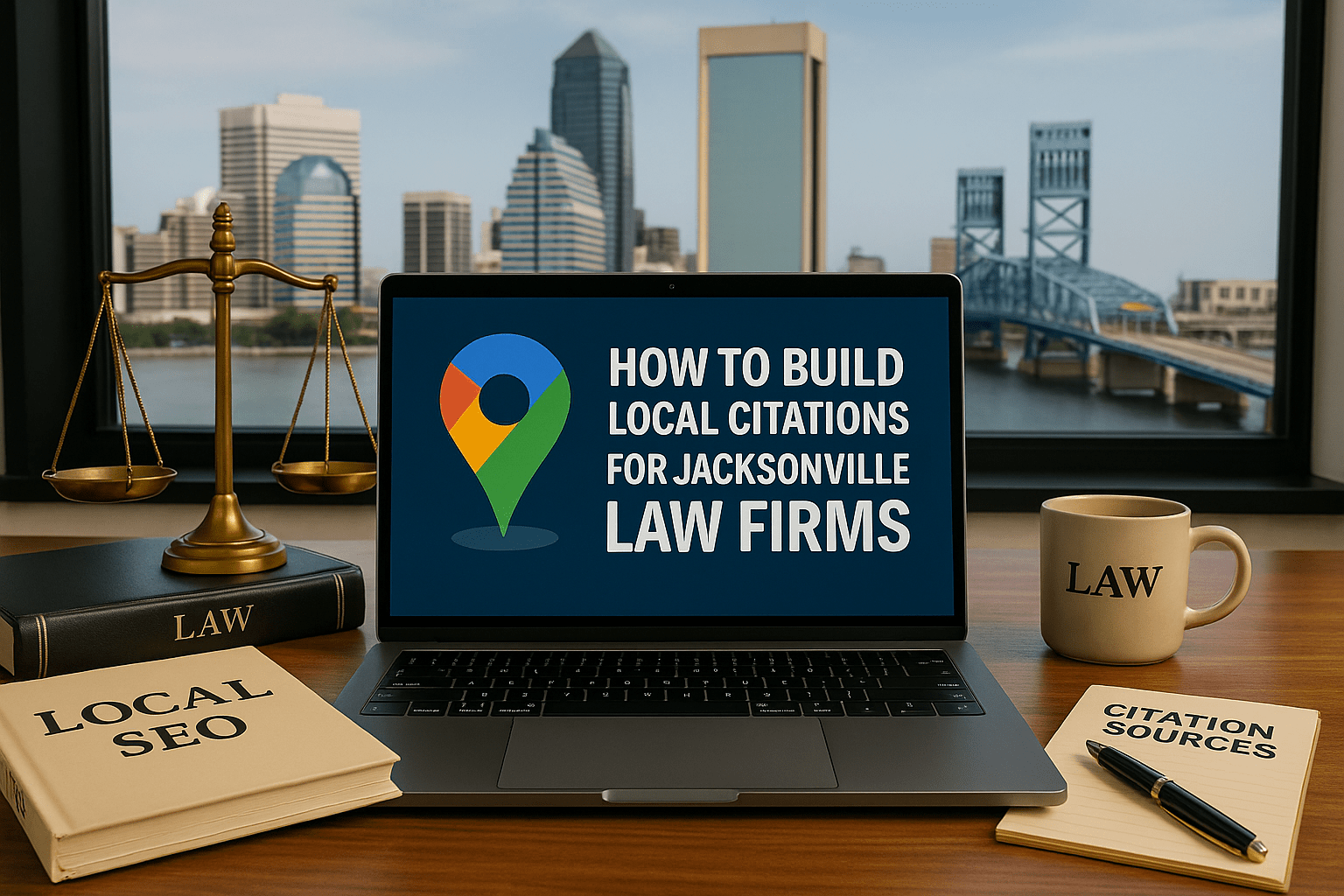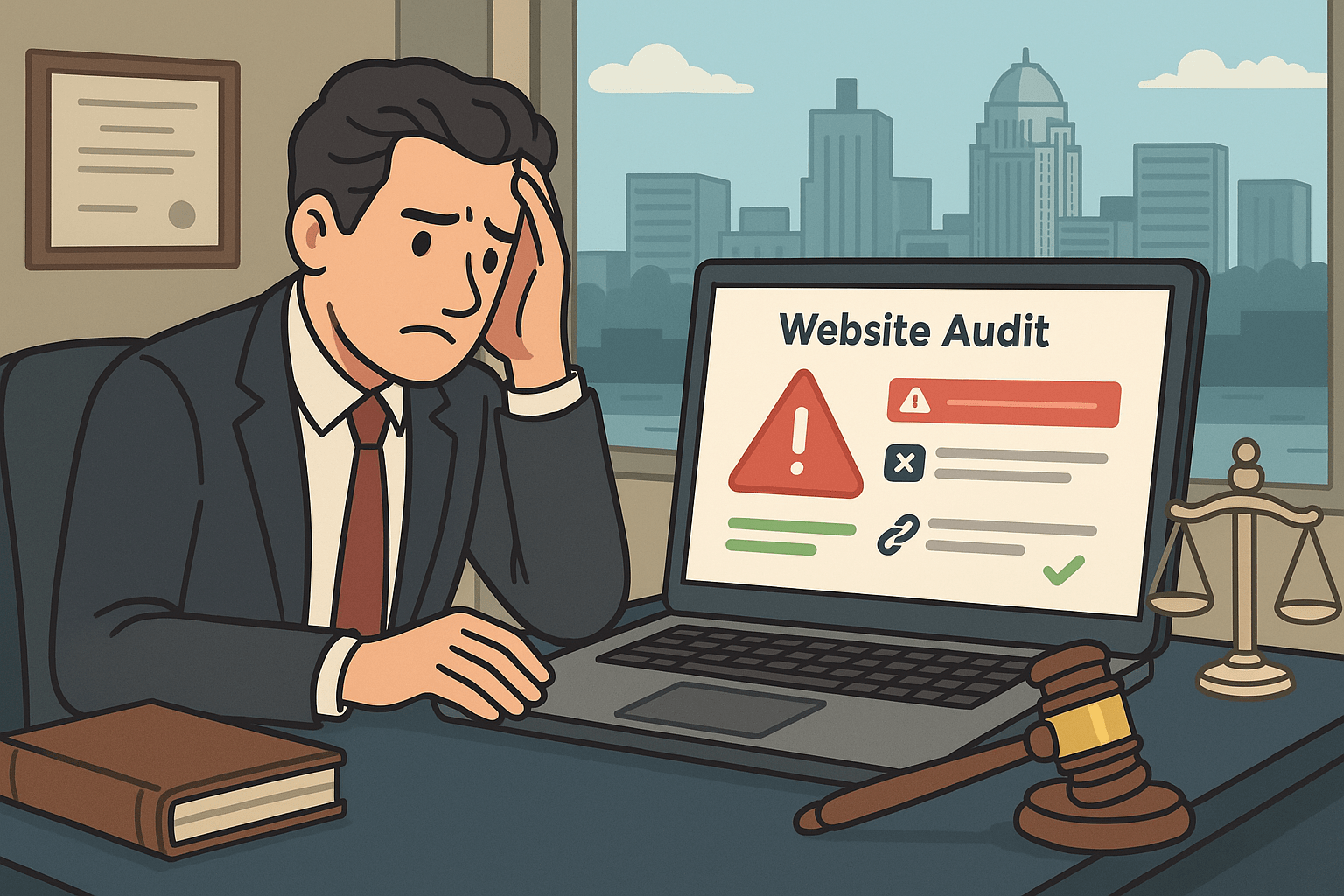Family law firms must prioritize local Search Engine Optimization (SEO) to connect effectively with potential clients in their vicinity. When individuals seek legal assistance for personal matters, they often search for nearby professionals, using terms like “divorce lawyer near me” or “child custody attorney in [City].”
If your firm doesn’t appear prominently in these local search results, you risk losing valuable opportunities to competitors. This comprehensive guide delves into the significance of local SEO for family law firms and provides actionable strategies to enhance your online presence.
Table Contents
- Why Local SEO Matters for Family Law Firms
- Key Statistics About Local SEO for Family Lawyers
- How Local SEO Impacts Family Law Firms
- Key Elements of SEO for Family Law Firms
- 1. Optimize Your Google My Business (GMB) Profile
- 2. Target Local Keywords
- 3. Build Local Backlinks
- 4. Create Location-Specific Pages
- 5. Optimize Your Website for Local SEO
- 6. Collect and Manage Reviews
- 7. Publish Localized Content
- 8. Monitor and Track Your SEO Progress
- Why Local SEO Is a Must for Family Law Firms
Why Local SEO Matters for Family Law Firms
Local SEO focuses on optimizing your online presence to attract business from local searches on search engines. For family law firms, this is crucial because potential clients typically seek legal services within their geographical area. By tailoring your SEO strategies to local searches, you ensure that your firm is visible to those who need your services the most.
Here’s why it’s essential:
- Increased Visibility: SEO for family law firms boosts your online presence, ensuring that when someone searches for a family lawyer, your practice appears in search results.
- More Traffic: Higher visibility leads to more website visitors, which can eventually turn into consultations and clients.
- Competitive Advantage: Family law is one of the most competitive niches in SEO. If you’re not optimizing for local search, you risk being overshadowed by your competitors.
- Cost-Effective: SEO is a long-term strategy that brings in organic traffic without relying on paid ads.
Now let’s look at specific strategies you can use to optimize your family law practice’s online presence for local SEO.
Key Statistics About Local SEO for Family Lawyers
46% of Google searches are for local businesses or services. ([Source: Google Consumer Insights])
76% of people who search for something nearby visit a business or call within 24 hours. ([Source: Think With Google])
Family law-related keywords, such as “divorce lawyer in [City],” are among the most competitive in local SEO, underscoring the need for effective optimization.
88% of local searches on mobile result in a call or visit to the business within 24 hours. ([Source: HubSpot])
92% of searchers pick businesses on the first page of local search results. ([Source: SEO Tribunal])
These numbers highlight why local SEO is not just beneficial but necessary for family law firms to attract clients.
How Local SEO Impacts Family Law Firms
Imagine two law firms in Austin, Texas:
Firm A: Has a fully optimized Google My Business (GMB) profile, local content, and a strong backlink strategy.
Firm B: Relies only on word-of-mouth and a website without local SEO.
When someone searches for “Austin divorce lawyer,” Firm A appears in the top three results, while Firm B is buried on page three. The result? Firm A gets more calls, consultations, and cases.
Key Elements of SEO for Family Law Firms
Here’s how to optimize your family law firm’s online presence for local search.
1. Optimize Your Google My Business (GMB) Profile
Your Google My Business (GMB) is foundational to your local SEO efforts. It ensures your firm appears in local search results and on Google Maps when potential clients search for legal services in your area.
Steps to Optimize Your GMB Profile:
- Claim and Verify Your Listing:
- Visit Google My Business and claim your profile.
- Fill Out All Information Completely:
- Name, Address, Phone Number (NAP).
- Website URL and business hours.
- Use the Right Categories:
- Primary Category: Family Law Attorney.
- Secondary Categories: Divorce Lawyer, Child Custody Lawyer, or Legal Services.
- Add Photos and Videos:
- Include high-quality images of your office, staff, and logo.
- Consider uploading a short introduction video about your firm.
- Write a Detailed Business Description:
- Example: “ABC Law Firm specializes in family law, including divorce, child custody, spousal support, and estate planning. Serving [City], we provide compassionate, results-driven representation.”
- Encourage Reviews:
Request feedback from satisfied clients.
Respond professionally to all reviews, addressing concerns and expressing gratitude for positive feedback.
- Post Updates Regularly:
- Share blogs, announcements, or events on your GMB profile to keep it active.
Pro Tip 1: Respond to all reviews professionally—thank clients for positive feedback and address negative reviews tactfully.
Pro Tip 2: Law firms that update their GMB posts weekly receive 2x more engagement than firms that do not. ([Source: BrightLocal])
Example: A law firm in Dallas added a detailed business description and uploaded client success videos. As a result, their GMB profile engagement increased by 65% within three months. ([Source: BrightLocal])
2. Target Local Keywords

Incorporating local keywords into your content is vital for ranking in area-specific searches.
How to Find Keywords:
- Use tools like Google Keyword Planner, Ahrefs, or SEMrush to find relevant keywords.
- Focus on long-tail keywords that combine your services with a location.
Examples of Local Keywords for Family Law Firms:
“Divorce lawyer in [City]”
“Child custody attorney near me”
“Affordable family lawyer in [County]”
“Estate planning attorney in [State]”
Where to Use Local Keywords:
Title tags and meta descriptions.
Service pages (e.g., Divorce, Custody, Mediation).
Blog posts (e.g., “How to Prepare for a Divorce in [City]”).
Image alt text and filenames.
URLs (e.g., /divorce-lawyer-los-angeles/).
Example: A Chicago-based firm optimized their content with local keywords and saw a 40% increase in organic leads. ([Source: Moz])
3. Build Local Backlinks

Backlinks from trusted local sources signal to Google that your law firm is an authority in the community.
How to Earn Local Backlinks:
- List Your Firm in Local Directories:
- Examples: Avvo, FindLaw, Justia, Super Lawyers, and Yelp.
- Partner with Local Organizations:
- Sponsor local charities, schools, or events.
- Guest Post on Local Blogs:
- Write articles about family law topics for local news websites or blogs.
- Collaborate with Local Businesses:
- Build relationships with therapists, mediators, or real estate agents who might link to your site.
Case Study: A New York firm collaborated with a local women’s shelter, earning backlinks from their site and increasing referral traffic by 32%. ([Source: Ahrefs])
4. Create Location-Specific Pages

If your family law firm serves multiple cities or counties, create unique pages for each location.
What to Include in Location Pages:
- Target Keywords:
- Example: “Top Child Custody Lawyer in [City], [State].”
- Localized Content:
- Discuss specific family law issues relevant to the location, such as local divorce laws or court processes.
- Client Testimonials:
- Add reviews or success stories from clients in that area.
- Clean URLs:
- Example: /family-lawyer-dallas/
Pro Tip: Write unique content for each location page to avoid duplicate content penalties.
Warning: Avoid duplicate content. Each page should have unique insights specific to that city.
5. Optimize Your Website for Local SEO

Your website should provide a seamless experience while being optimized for local search.
Website Optimization Checklist:
✅ Mobile-Friendly Design: Ensure your site is responsive and looks great on all devices.
✅ Fast Load Times: Use tools like Google PageSpeed Insights to improve site speed.
✅ Display NAP Information Consistently: Include your Name, Address, and Phone Number on every page (footer or contact page).
✅ Embed Google Maps: Add a map with your office location on your contact page.
✅ Schema Markup: Use local business schema to help search engines understand your firm’s location and services.
Example: A Miami firm improved website load speed by 40%, leading to a 27% increase in conversions. ([Source: Google PageSpeed Insights])
6. Collect and Manage Reviews

Online reviews are one of the most important factors for local SEO rankings.
How to Manage Reviews:
- Encourage Reviews: Politely ask clients to leave reviews on Google, Yelp, or Avvo after their cases are resolved.
- Respond to All Reviews: Thank clients for positive feedback and address negative reviews professionally.
Pro Tip: Highlight positive reviews on your website or social media profiles to build trust with potential clients.
7. Publish Localized Content

Creating localized content helps establish your law firm as an authority in your area.
Content Ideas for Family Law Firms:
- Blog Posts:
- “Understanding Child Custody Laws in [City].”
- “What to Expect During a Divorce Mediation in [State].”
- FAQs: Answer common questions about family law topics specific to your location.
- Case Studies: Share anonymized success stories that highlight your expertise.
- Videos: Record short videos explaining legal concepts like spousal support or prenuptial agreements.
Example: A firm in Phoenix created a blog series answering Arizona divorce FAQs, increasing their organic traffic by 60%. ([Source: SEMrush])
8. Monitor and Track Your SEO Progress

Tracking your SEO performance ensures you’re moving in the right direction and allows you to adjust as needed.
Tools to Use:
- Google Analytics: Measure traffic and user behavior.
- Google Search Console: Monitor your keyword rankings and search visibility.
- BrightLocal: Track local SEO metrics, including reviews and citations.
Key Metrics to Watch:
- Growth in local keyword rankings.
- Increased traffic to location-specific pages.
- Higher volume of calls, form submissions, and consultations.
Why Local SEO Is a Must for Family Law Firms
Local SEO is one of the most effective ways for family law firms to grow. By optimizing your Google Business Profile, leveraging Local Services Ads, and publishing relevant content, your firm can attract more clients and dominate local search rankings.
Remember, local SEO is an ongoing process. Implement these strategies today to increase visibility and generate more leads for your family law firm.









